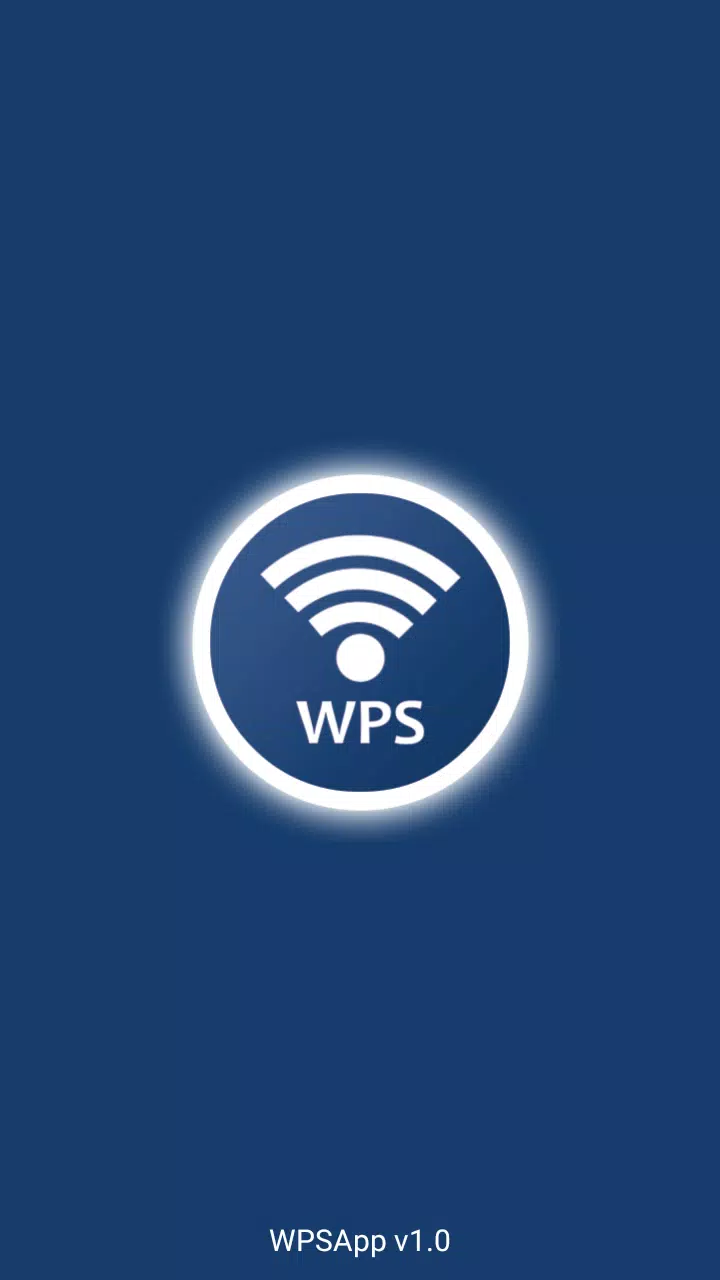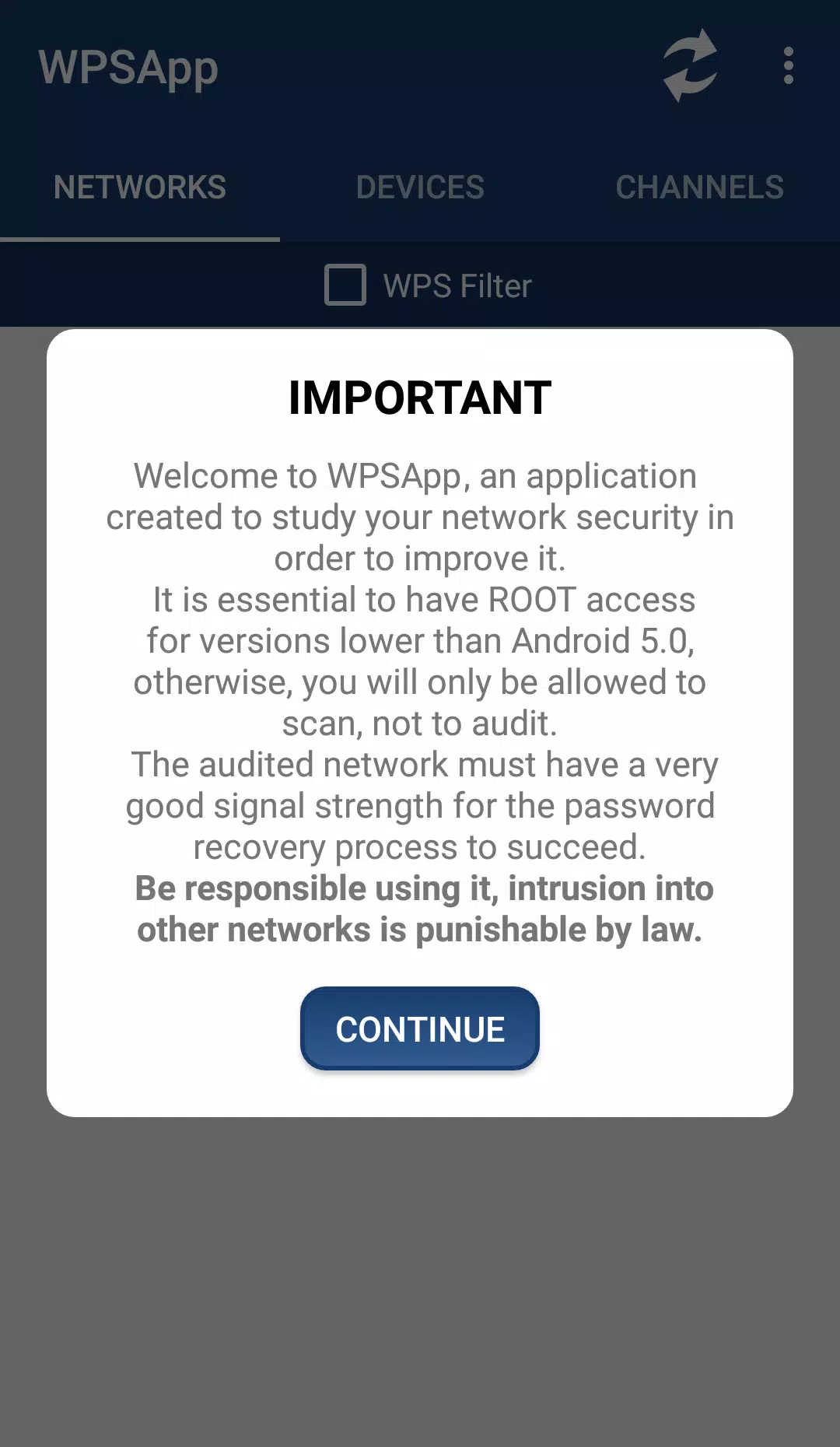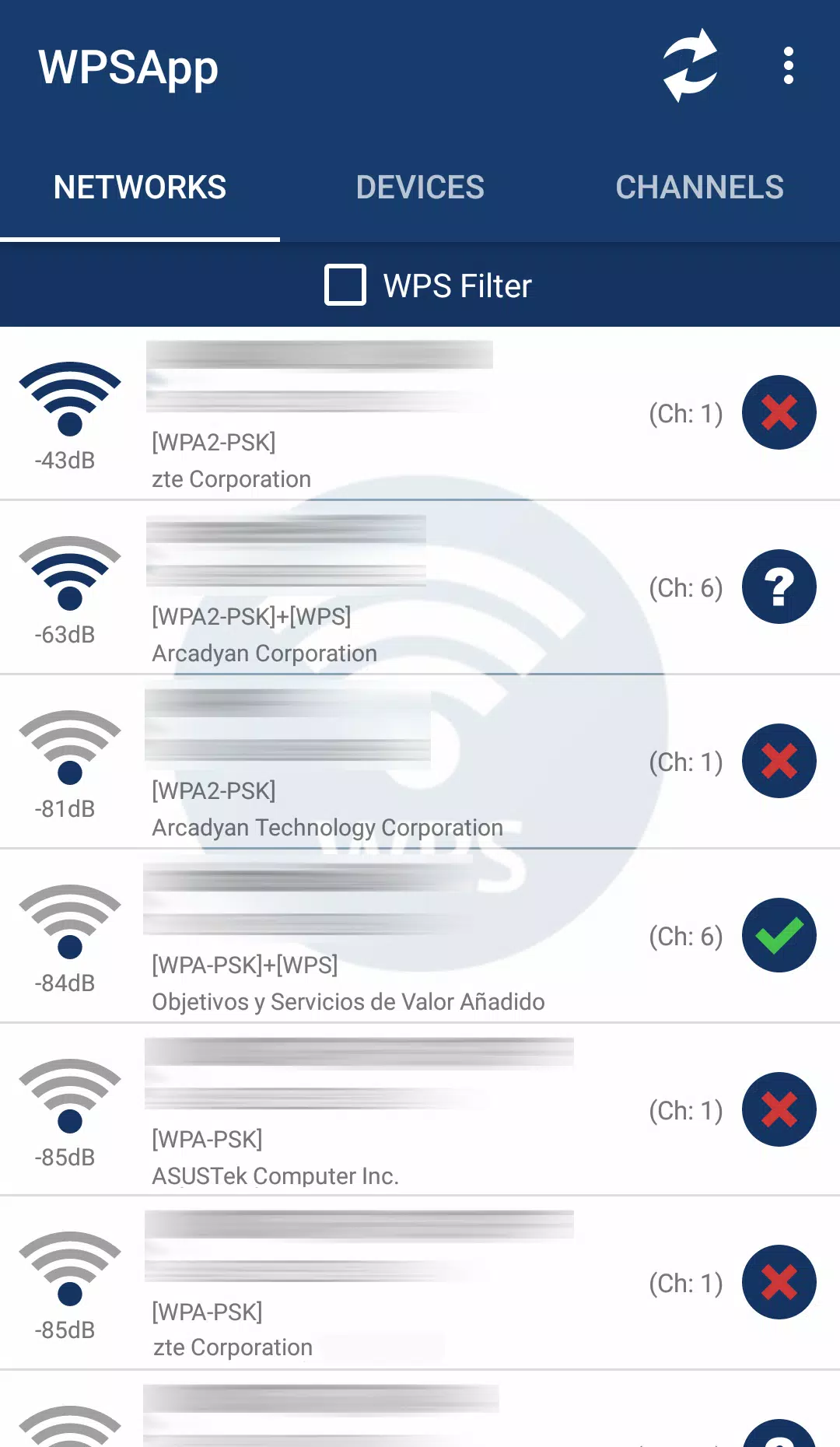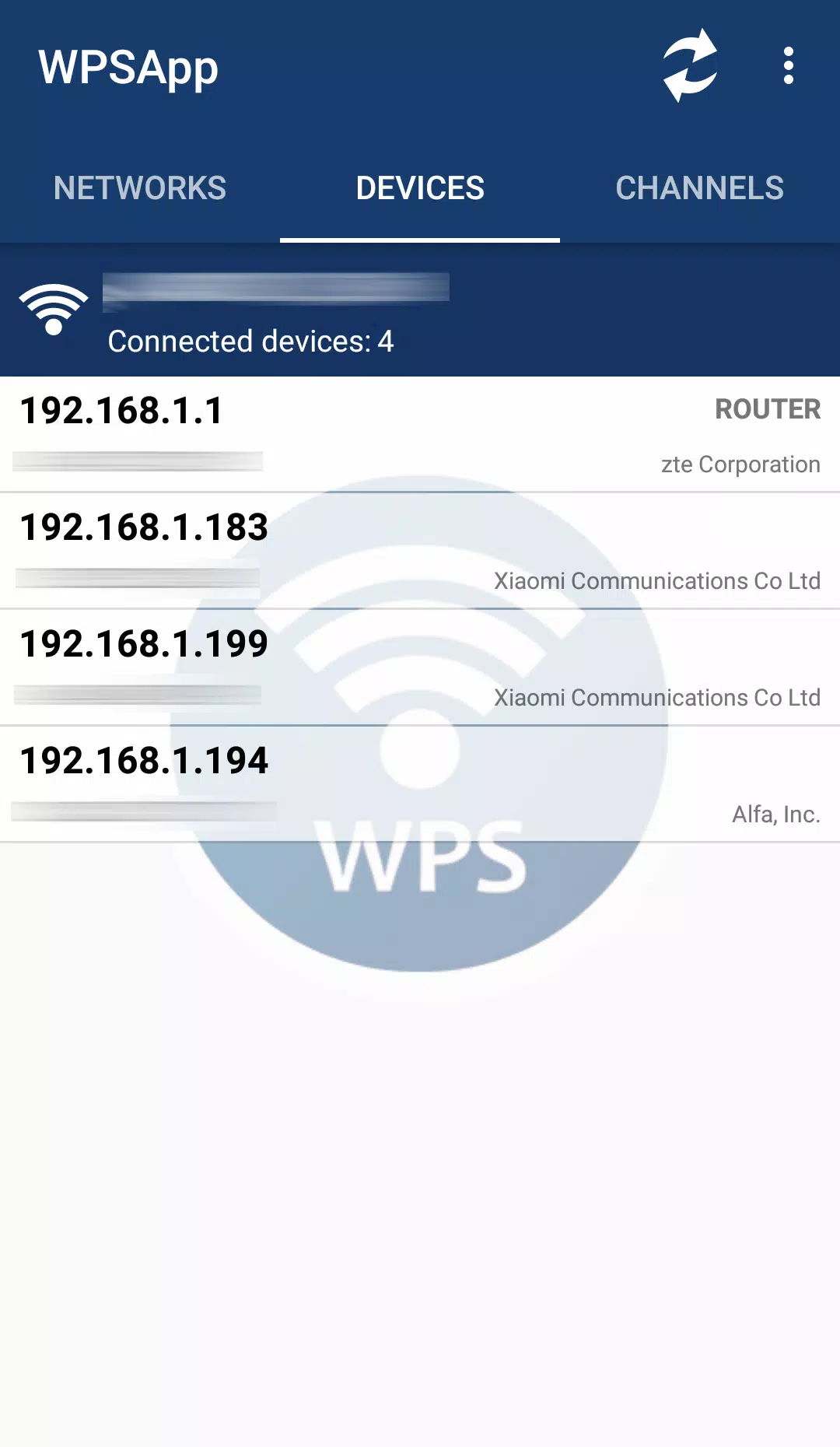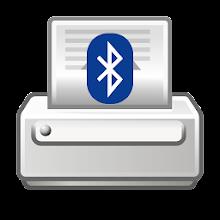Ensuring the security of your WiFi network is crucial in today's digital age. Using tools like WPSApp can help you evaluate the vulnerability of your network through the WPS protocol. This protocol enables you to connect to a WiFi network using an 8-digit pin number, which is often pre-set by the router manufacturer. However, a significant issue arises because the pin codes for many routers from various brands are either widely known or can be easily calculated.
WPSApp leverages these known pins to attempt connections and assess the network's vulnerability. The app employs several algorithms for pin generation and includes default pins. Beyond just checking WPS vulnerabilities, it also calculates default keys for certain routers, displays WiFi passwords saved on your device, scans devices connected to your network, and evaluates WiFi channel quality.
Using WPSApp is straightforward. When scanning nearby networks, you'll see networks marked with a red cross; these are considered "secure" as they have disabled the WPS protocol, and their default passwords are unknown. Networks marked with a question mark have WPS enabled, but their pins are unknown. In such cases, the app lets you try common pins. Networks with a green tick are likely vulnerable; they have WPS enabled, and their connection pins are known. Even if WPS is disabled, but the password is known, the network will still appear in green, indicating you can connect using the known key.
To access certain features like viewing passwords, connecting on Android 9/10, and other advanced functions, you need to be a Root user. It's important to note that not all networks are vulnerable, and a network appearing vulnerable does not guarantee 100% susceptibility, as many router manufacturers have updated their firmware to address these issues.
It's advisable to test your own network using WPSApp. If you find it vulnerable, take immediate action by disabling WPS and setting a strong, personalized password. Remember, unauthorized access to foreign networks is illegal and punishable by law.
Starting from Android 6 (Marshmallow), granting location permissions is necessary due to new requirements from Google. For more information, visit: Google's Android 6.0 Changes.
Some Samsung models encrypt passwords, showing a long hexadecimal string instead of the actual password. For decryption details, search online or contact the developer. Also, note that pin connections do not work on LG models running Android 7 (Nougat) due to issues with LG's software.
Before rating the app, it's crucial to understand its functionality fully. For any suggestions, issues, or feedback, you can reach out to the developer at [email protected].
The development of WPSApp would not have been possible without contributions from individuals like Zhao Chunsheng, Stefan Viehböck, Justin Oberdorf, Kcdtv, Patcher, Coeman76, Craig, Wifi-Libre, Lampiweb, David Jenne, Alessandro Arias, Sinan Soytürk, Ehab HoOoba, drygdryg, and Daniel Mota de Aguiar Rodrigues. Their efforts have significantly enhanced the app's capabilities.


